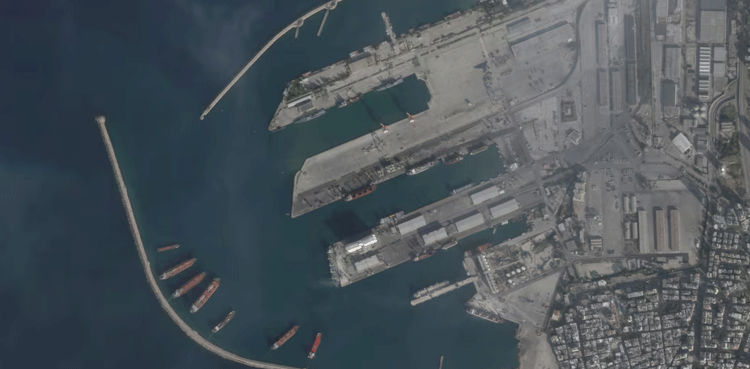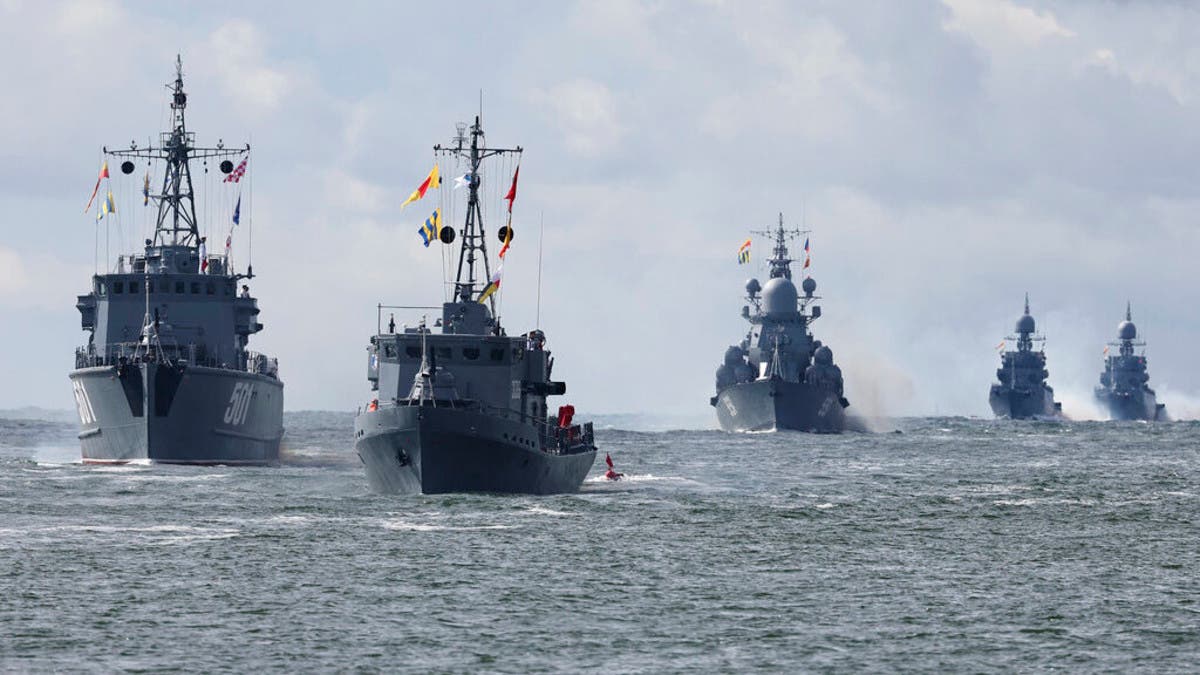Russian Navy Ships Anchored by Syrian Rebels: A Major Blow to Putin’s Military Capabilities
The recent event where Syrian rebel forces successfully anchored Russian Navy ships marks a pivotal moment in the ongoing conflict in the Middle East, representing a severe blow to Russian President Vladimir Putin’s military prestige and his defense capabilities. This incident has reverberated across geopolitical circles, raising questions about Russia’s influence in Syria, its naval power, and its ability to assert its dominance in international military matters.
The conflict in Syria, now in its more than a decade-long span, has been a significant area of focus for the Russian Federation. Russian military support for Syrian President Bashar al-Assad has been central to maintaining his regime’s survival against both rebel forces and external actors, such as the United States, Turkey, and other regional powers. This support has come in the form of airstrikes, intelligence sharing, and the presence of Russian naval and military units stationed in key locations such as Tartus, Syria’s only Mediterranean naval base, and the Hmeimim Air Base.
However, the reported anchoring of Russian navy ships by Syrian rebels has the potential to change the narrative of Russian involvement in the region. It is not just a military setback but a psychological one, challenging Russia’s image as a formidable naval power and casting doubts over its future influence in the Mediterranean.

Background: Russia’s Strategic Interests in Syria
Russia’s military presence in Syria dates back to 2015 when it intervened in the Syrian Civil War in support of Bashar al-Assad’s government. This intervention helped turn the tide in Assad’s favor after years of battlefield setbacks and waning international support. By assisting Assad in quelling the rebellion, Russia gained a foothold in the Mediterranean region, with access to important naval and air facilities, notably the naval facility in Tartus and the airbase at Hmeimim.
For Russia, these military and logistical footholds in Syria serve multiple purposes. First, they secure a strategic presence in the Mediterranean, an area of critical geopolitical importance, particularly concerning NATO and the United States. Second, it allows Russia to bolster its influence in the Middle East, counteracting Western powers’ involvement in the region. Finally, Syria’s geopolitical significance is tied to its proximity to regional players, including Israel, Iran, and Turkey, all of which play significant roles in the broader dynamics of Middle Eastern and European security.
Russian naval power in the Mediterranean is also a key component of its overall strategy for regional and global influence. Russia’s fleet in the region, including destroyers, submarines, and reconnaissance ships, provides not only a symbol of strength but also a strategic deterrent to Western nations and a platform for projecting force in the broader Mediterranean region.

The Syrian Rebel Action: A Blow to Russian Naval Prestige
The news that Syrian rebel forces successfully managed to anchor Russian Navy ships in Syrian territorial waters has shocked both the international community and Russian military observers. While exact details of the operation remain scarce, the implications of such an act are far-reaching, especially when viewed through the lens of military strategy and Russian defense posture.
The notion that armed opposition groups within Syria could so effectively challenge Russia’s naval presence underscores a serious vulnerability in the Russian defense strategy in the region. Syrian rebel forces, traditionally considered under-equipped and outgunned in comparison to the well-armed Russian military, have historically posed a threat to Assad’s regime. However, this latest act of rebellion represents a new kind of challenge—a direct assault on Russia’s military infrastructure.

How Syrian Rebels Pulled Off the Operation
Reports suggest that the Syrian rebels employed a combination of asymmetric warfare tactics, local intelligence, and strategic timing to outmaneuver Russian naval forces. Utilizing small, fast-moving boats and possibly even anti-ship missile systems, the rebels managed to launch a surprise attack on Russian naval assets moored off the coast of Syria. The element of surprise, combined with effective coordination, allowed the rebel forces to disable or force the ships into a position where they could be effectively “anchored” or immobilized.
The precise capabilities of the Syrian rebels in this operation remain a subject of speculation. There are reports indicating that the rebels may have had assistance from external sources, which could involve the provision of advanced anti-ship missiles or technical expertise from other Middle Eastern or even Western countries. This raises questions about the extent of foreign involvement in the conflict and the increasing sophistication of rebel groups in Syria.

Russia’s Response: A Military Setback
In response to the incident, Russia’s military leadership has had to confront a harsh reality: a vulnerability in its naval operations that could have far-reaching consequences for its defense posture. A key element of Russian naval power lies in its ability to assert dominance in regional waters, such as the Mediterranean, through its powerful fleet. The immobilization of ships by a relatively small group of rebels represents a serious setback in Russia’s defense capabilities.
While the Russian military likely possesses the capacity to quickly recover from such a blow, the incident sends a powerful message to both adversaries and allies alike. It exposes a weakness in Russia’s ability to protect its assets in hostile environments and casts doubt on its ability to deter future acts of defiance from non-state actors operating within Syria.
Beyond the immediate military implications, this event also deals a psychological blow to Putin’s regime, which has long sought to project an image of strength and invulnerability on the world stage. The successful anchoring of Russian naval vessels by Syrian rebels undermines this narrative, showcasing how vulnerable even one of the world’s most formidable military powers can be when facing unconventional threats.

Geopolitical Ramifications: What Does This Mean for Putin’s Influence?
The anchoring of Russian ships by Syrian rebels has significant geopolitical ramifications that extend far beyond Syria’s borders. First and foremost, it calls into question the stability of Russian influence in the Middle East. Russia has long positioned itself as a dominant power in the region, particularly through its alliance with Assad’s regime. However, the attack on Russian naval assets signals the possibility that local forces, backed by external powers, could challenge Russia’s dominance in the region.
This event may embolden other rebel groups and regional actors who are opposed to Russian involvement in Syria. Turkey, for instance, has been a vocal critic of Russian military presence in Syria, particularly in the context of its own interests in the region. Similarly, Western powers, including the United States, have long been wary of Russia’s growing influence in the Middle East. This development provides a potent rallying cry for those who seek to undermine Russia’s efforts in the region.
Additionally, the Russian military’s response to this event will likely shape its future military strategies. The Kremlin may be forced to reassess its naval operations and defensive capabilities in the Mediterranean, especially in terms of ensuring the security of its assets from asymmetric threats. This could lead to an increased focus on bolstering Russia’s naval defense capabilities, including the deployment of additional air defense systems, maritime patrols, and potentially even more advanced weaponry to protect its fleet.

The Strategic Significance of the Mediterranean
The Mediterranean Sea has long been a strategic theater for global powers, and Russia’s presence in the region has been a key component of its broader strategy of power projection. The ability to protect its naval assets in this area is essential for maintaining its credibility as a regional superpower. The failure to do so, as demonstrated by the Syrian rebels’ operation, has the potential to weaken Russia’s strategic position.
This incident may also influence broader security concerns in Europe and the Middle East. Countries like Israel, which shares an uneasy peace with Russia regarding its operations in Syria, will likely be closely monitoring the fallout from this incident. Similarly, NATO member states will undoubtedly take note of Russia’s vulnerability in the region, potentially influencing their future military planning.
Conclusion: A Vulnerability Exposed
The anchoring of Russian Navy ships by Syrian rebels represents a significant shift in the dynamics of the Syrian Civil War and Russian military operations in the Middle East. It highlights the vulnerabilities of even the most powerful military forces when faced with unconventional tactics and regional insurgencies. This event will undoubtedly reverberate through Russia’s defense strategy and could have lasting implications for its influence in the Middle East and beyond.
For Putin, the damage done by this incident is both immediate and long-term. Militarily, it represents a loss of face and a demonstration that Russia’s presence in Syria is not as secure as previously thought. Geopolitically, it sends a message to both allies and adversaries that Russia’s grip on the region may be more fragile than it seems. As the Syrian Civil War continues to unfold, the world will be watching to see how Russia responds and whether it can recover from this substantial blow to its military capabilities.









